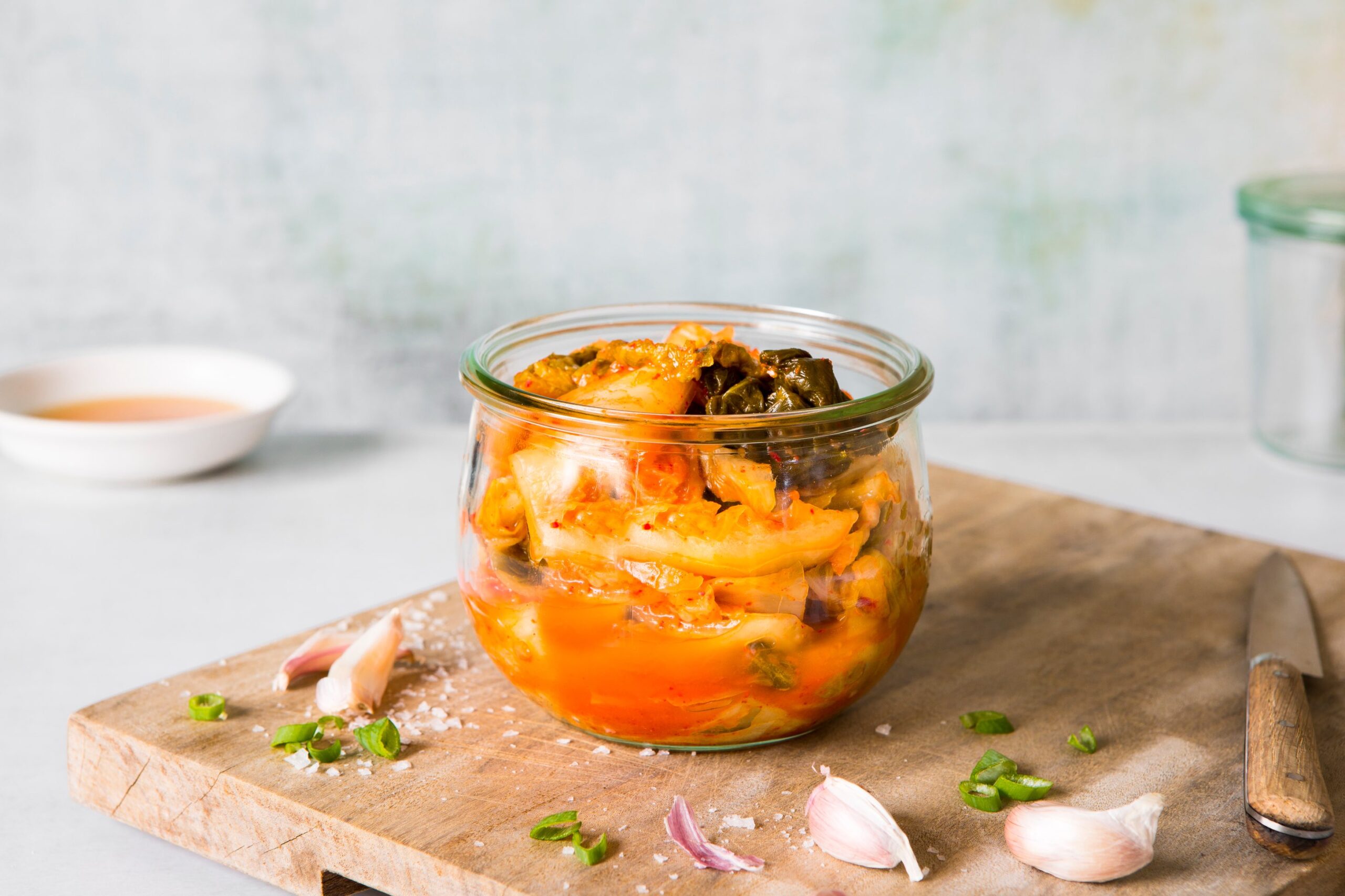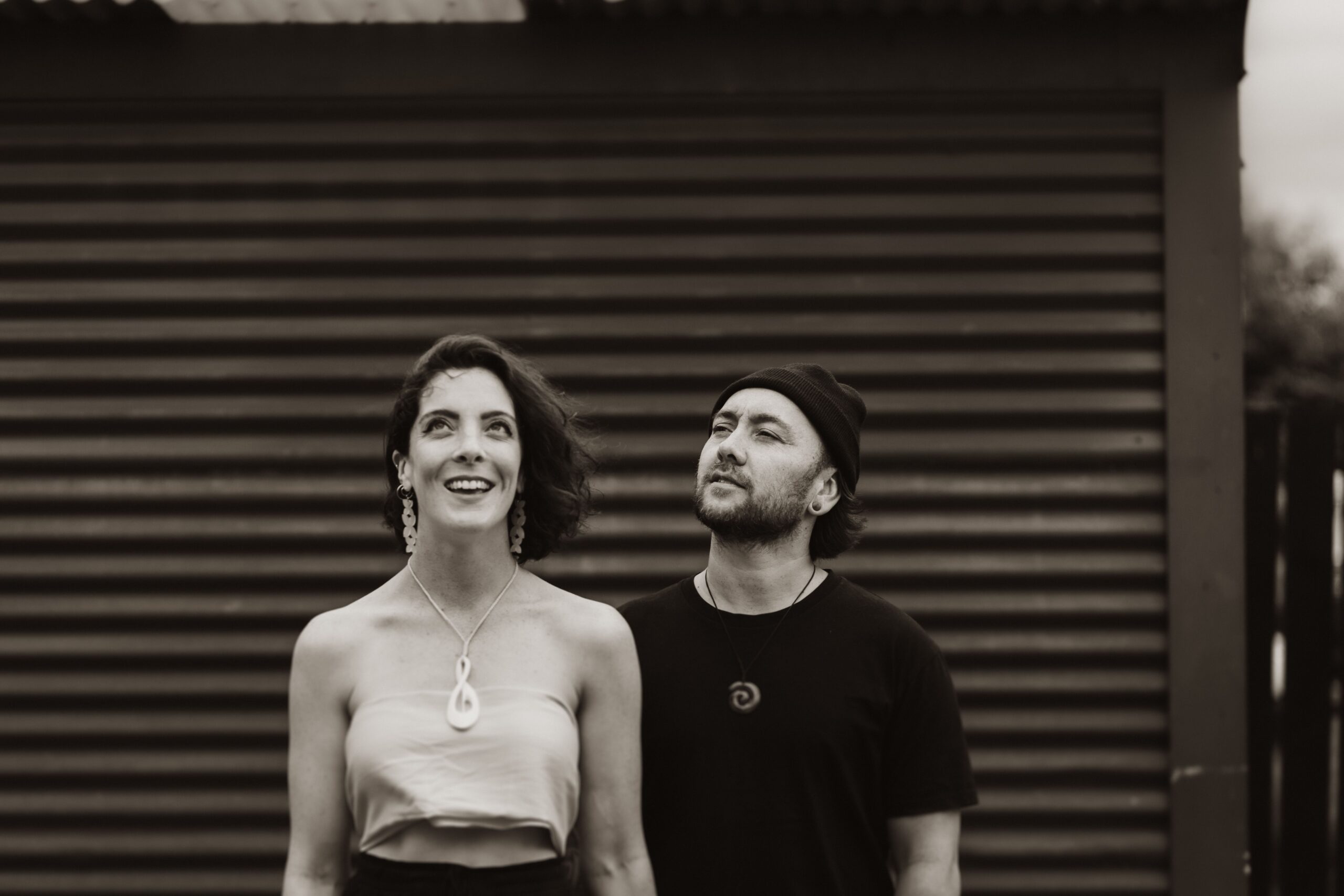A change in lifestyle for one young family meant heading back to the family farm, to produce premium free-range pasture eggs.
Nestled in the lush green pastures of Wainui – a small rural town just a hop, skip and jump away from Auckland’s North Shore – you will find husband-and-wife team Deonne and Dean Olliff, proud owners of Olliff Farm. While Dean’s family has been farming this land since 1945, it was only in 2013 that Dean and Deonne decided to move back to the countryside, to give their children wider spaces to grow and roam.
In this small portion of land carved out from the larger dairy farm, this couple have successfully crafted a livelihood through eggs – not just any eggs but premium, free-range pasture eggs.
Over a morning spent with this enterprising couple, their three children, Beau (7) Archer (6) and Darla (2), and their flock of 1800 happy brown shaver hens, we discover why chefs in Auckland have been raving about these eggs, which now grace the kitchens of many highly regarded restaurants including Clooney and Daily Bread.
Dean and Deonne are part of a growing group of ‘entrepreneurial farmers’, who come into farming from other, often unrelated, professions. Dean trained and worked as an electrician while Deonne was a buyer for high-end surf and street wear with an international chain. They met at a festival in the UK during their OE and moved back to New Zealand in 2005.
While Dean has learned much from a family history of farming, the couple decided to set up their own farm on principles of modern, smallholding farming.
Moveable feast
Deonne and Dean’s hens are kept in micro flocks of 350 to 400 that roam the green paddocks. Not only do they have ample outdoor space, these hens also enjoy a varied environment owing to their inventive accommodation in the form of chicken caravans.
Looking nothing like an ordinary coop, these specially designed caravans provide not only a sheltered, safe space for the hens but, equally importantly, access to a varied environment. When the hens have had enough of foraging in one spot, Dean simply hooks up a caravan to his trusty, small tractor and moves their home to a different part of the paddock. This regular change in environment enables the hens to forage a diverse range of bugs, grubs, seeds and fresh greens from pastures that are healthy and regenerated.
There is also a small herd of cows still on their land, which have been an ideal companion to the hens over the past three years. As Dean explains, “The foraging chooks love having their lawn ‘mowed’ by the cows, which means the vitamin D from the sun’s rays can shine through to the grass roots and nourish the critters that live below. The hens love to rummage through the cow pats for little insects and, in the process, help spread nitrogen over the paddocks to fertilise it along with their own chicken poop”. In addition, the cattle’s manure works as a positive fertiliser for the land. It is a mutually beneficial relationship for both. This is perhaps the reason that Olliff eggs taste rich, creamy and extremely delicious.
Fresh is best
Dean and Deonne have a “four-day freshness” rule which sees their freshly laid eggs collected each day. They are hand graded and inspected for hairline cracks before every egg is stamped with their triple ‘fff’ logo and packed for delivery to restaurants and retail. The eggs are sold or delivered off the property within four days. Dean wryly mentions, “Some chefs have been known to ‘skite’ just a little on the menu about ‘eggs that are laid the same day as they are served’.”
While most of their eggs are personally delivered to their restaurant clientele, they can also be found in stores such as Farro Fresh, Naturally Organic and cafes. For those who live near Wainui, they can be purchased directly from the farmhouse.
Natural cycle
The youngest flock of hens starts laying from 16 weeks of age. The natural cycle of an egg-laying brown shaver runs to 18 months to two years. Then the feathery ladies are moved out to a nearby Dairy Flat farmer who specialises in rehoming them as pets in urban or rural homes.
As we watch son Beau comfortably pick up and hold a hen in his arms, Dean talks about their dream of being self-sufficient by 2020 and reducing their reliance on supermarkets for their daily food. Part of this is already in action in their community. Neighbouring farms with excess fruit, vegetables and produce operate a small community trading post in the town hall.
We eventually sit down at a table laden with their hand-raised, labour of love eggs, cooked in several different ways – their own family recipe for fresh Olliff egg wraps, followed by the surprisingly easy to make, and delicious, Kiwi eggs, and finishing off with decadent Portuguese tarts.
Did you know?
- The colour of a hen’s ear determines the colour of an egg. A brown shaver will produce a brown egg. Other coloured hens will have eggs the same colour as the inside of their ears.
- Egg protein contains eight amino acids and is one of the highest quality proteins available. The yolk of an egg is a major source of good fat and, while the colour can be affected by its feed, this does not indicate superior nutrition.
- An egg contains every vitamin except C. They are also one of the few food sources of vitamin D and are rich in phosphorous. This combination helps provide the body with the necessary building blocks for healthy bones and teeth.
- To test freshness, sit an egg in a cup of water. If it floats, it’s old. Pasture-raised eggs contain more vitamin A, omega-3 fats, vitamin E and less saturated fat than intensively farmed eggs.





